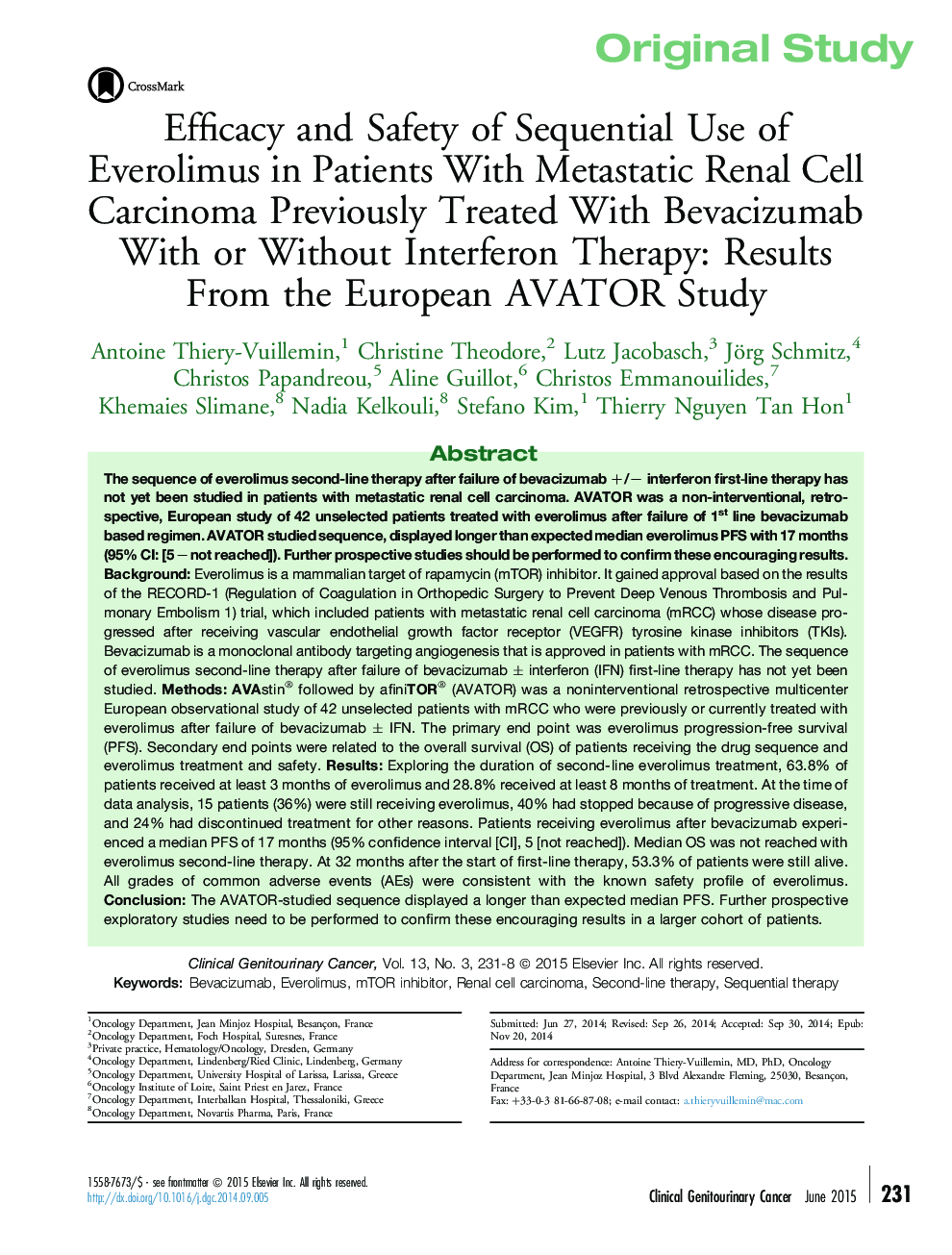| کد مقاله | کد نشریه | سال انتشار | مقاله انگلیسی | نسخه تمام متن |
|---|---|---|---|---|
| 2752051 | 1149540 | 2015 | 8 صفحه PDF | دانلود رایگان |

BackgroundEverolimus is a mammalian target of rapamycin (mTOR) inhibitor. It gained approval based on the results of the RECORD-1 (Regulation of Coagulation in Orthopedic Surgery to Prevent Deep Venous Thrombosis and Pulmonary Embolism 1) trial, which included patients with metastatic renal cell carcinoma (mRCC) whose disease progressed after receiving vascular endothelial growth factor receptor (VEGFR) tyrosine kinase inhibitors (TKIs). Bevacizumab is a monoclonal antibody targeting angiogenesis that is approved in patients with mRCC. The sequence of everolimus second-line therapy after failure of bevacizumab ± interferon (IFN) first-line therapy has not yet been studied.MethodsAVAstin® followed by afiniTOR® (AVATOR) was a noninterventional retrospective multicenter European observational study of 42 unselected patients with mRCC who were previously or currently treated with everolimus after failure of bevacizumab ± IFN. The primary end point was everolimus progression-free survival (PFS). Secondary end points were related to the overall survival (OS) of patients receiving the drug sequence and everolimus treatment and safety.ResultsExploring the duration of second-line everolimus treatment, 63.8% of patients received at least 3 months of everolimus and 28.8% received at least 8 months of treatment. At the time of data analysis, 15 patients (36%) were still receiving everolimus, 40% had stopped because of progressive disease, and 24% had discontinued treatment for other reasons. Patients receiving everolimus after bevacizumab experienced a median PFS of 17 months (95% confidence interval [CI], 5 [not reached]). Median OS was not reached with everolimus second-line therapy. At 32 months after the start of first-line therapy, 53.3% of patients were still alive. All grades of common adverse events (AEs) were consistent with the known safety profile of everolimus.ConclusionThe AVATOR-studied sequence displayed a longer than expected median PFS. Further prospective exploratory studies need to be performed to confirm these encouraging results in a larger cohort of patients.
Journal: Clinical Genitourinary Cancer - Volume 13, Issue 3, June 2015, Pages 231–238